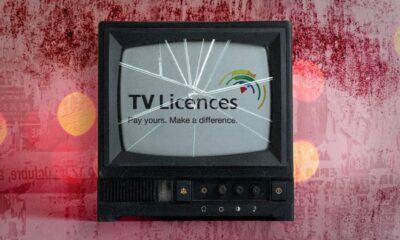Business
Government Breaks Free from SITA Monopoly A New Era for South Africa’s Digital Future

For decades, South Africans have stood in long queues, waiting to renew IDs, apply for passports, or get simple documents—only to be told “the system is offline.” But as of June 2025, that frustrating phrase might slowly become a thing of the past.
A new set of IT procurement rules has quietly reshaped the future of government services. The change, gazetted by Communications and Digital Technologies Minister Solly Malatsi, opens the door for government departments to contract IT services outside the State Information Technology Agency (SITA). It’s not just a tweak in the law—it’s the beginning of the end for yet another underperforming state monopoly.
A Long-Awaited Reform
SITA has long served as the go-to IT provider for the public sector. But “served” may be too generous a word. Its reputation has been marred by system failures, complaints of slow delivery, and even allegations of mismanagement. The complaints haven’t just come from frustrated citizens—they’ve been echoed by departments like Home Affairs and the South African Police Service (SAPS), who rely heavily on dependable digital systems to serve the public.
Enter Regulation 17.8: a powerful clause that allows any department to step away from SITA—if the agency can’t deliver what’s needed on time and on budget.
Departments can now give written notice to SITA if they find an external provider offering faster or cheaper services. SITA then has 10 working days to prove it can meet the same requirements. If it can’t, the department is free to look elsewhere.
For the first time, SITA must compete like any other service provider. Monopoly, meet market forces.
A Victory for Efficiency
“This is what evidence-based governance looks like,” said Business Leadership South Africa CEO Busisiwe Mavuso. “Imagine Home Affairs running as efficiently as SARS.”
It’s a fair point. The South African Revenue Service is a rare gem in the public sector—a department praised for its tech-savvy operations and efficiency. The hope now is that others can follow suit.
With this regulation, departments are no longer locked into relying on a single provider—especially one with a track record of failing to deliver. The result? Faster service delivery, better infrastructure, and, hopefully, fewer system crashes that hold up queues across the country.
Public Reaction: ‘It’s About Time’
On social media, many South Africans responded with a mix of relief and skepticism. “This could finally fix the Home Affairs nightmare,” one user posted on X (formerly Twitter). Another said, “Nice idea. Let’s see if it actually works.”
Given South Africa’s experience with other state monopolies—like Eskom—cautious optimism is warranted. Still, this time the reform didn’t come from litigation or crisis, but from a thoughtful regulatory shift.
SITA Still Has a Shot, If It Steps Up
To be clear, SITA isn’t out of the picture. It hasn’t been scrapped—it’s just no longer the only game in town. If it can improve its service, reduce inefficiencies, and root out corruption, it can still be a player in the new landscape.
“SITA will now have to win business on merit,” Mavuso added. “If it can’t evolve, government departments won’t be trapped by its limitations.”
Context: A Pattern of Breaking Monopolies
The move fits into a broader trend in South African governance. In the early 2000s, the state lost a long legal battle that forced open the telecoms sector. More recently, Eskom’s unreliability opened the door to private energy producers.
Now it’s IT’s turn. And unlike Eskom or Telkom, this change didn’t require years of court fights or rolling blackouts—just smart policymaking.
A Glimmer of Hope for Better Service Delivery
In a country where digital failures have real-world consequences—missed job interviews, delayed grants, even lost lives—the ability to modernise public IT systems is no small feat.
This regulation gives departments the freedom to innovate, digitise, and actually serve the public. It’s a quiet shift, but a monumental one.
And while it may not fix every glitch overnight, it’s a step toward a smarter, more responsive government. For South Africans tired of the “offline” excuse, that’s a headline worth celebrating.
{Source: BusinessTech}
Follow Joburg ETC on Facebook, Twitter , TikTok and Instagram
For more News in Johannesburg, visit joburgetc.com



























